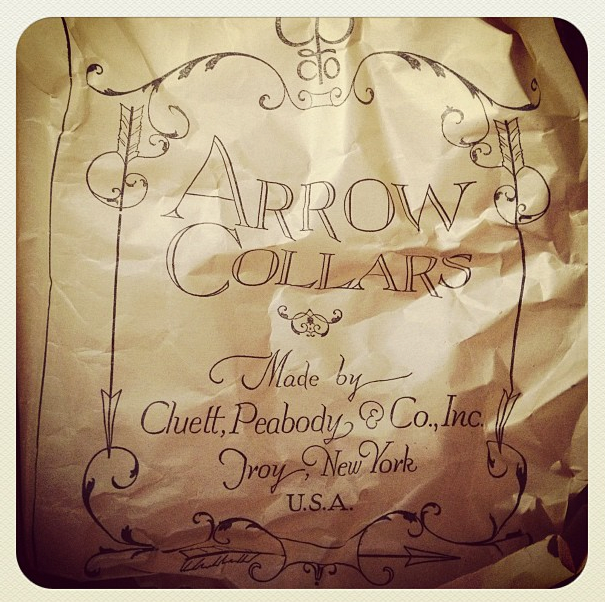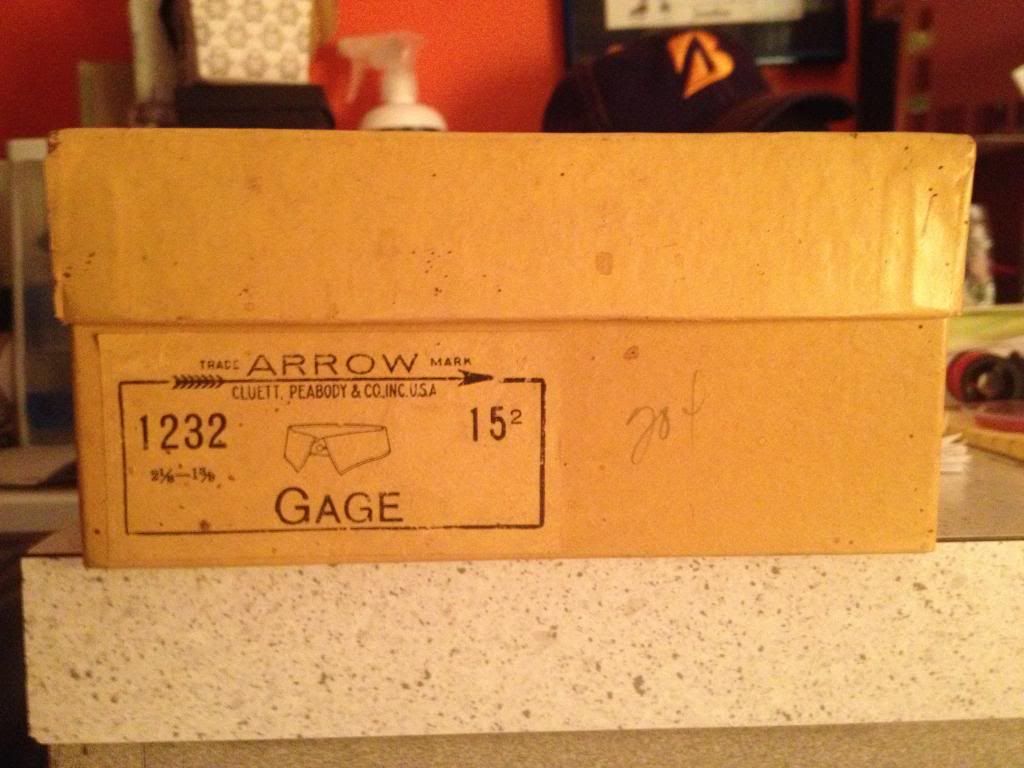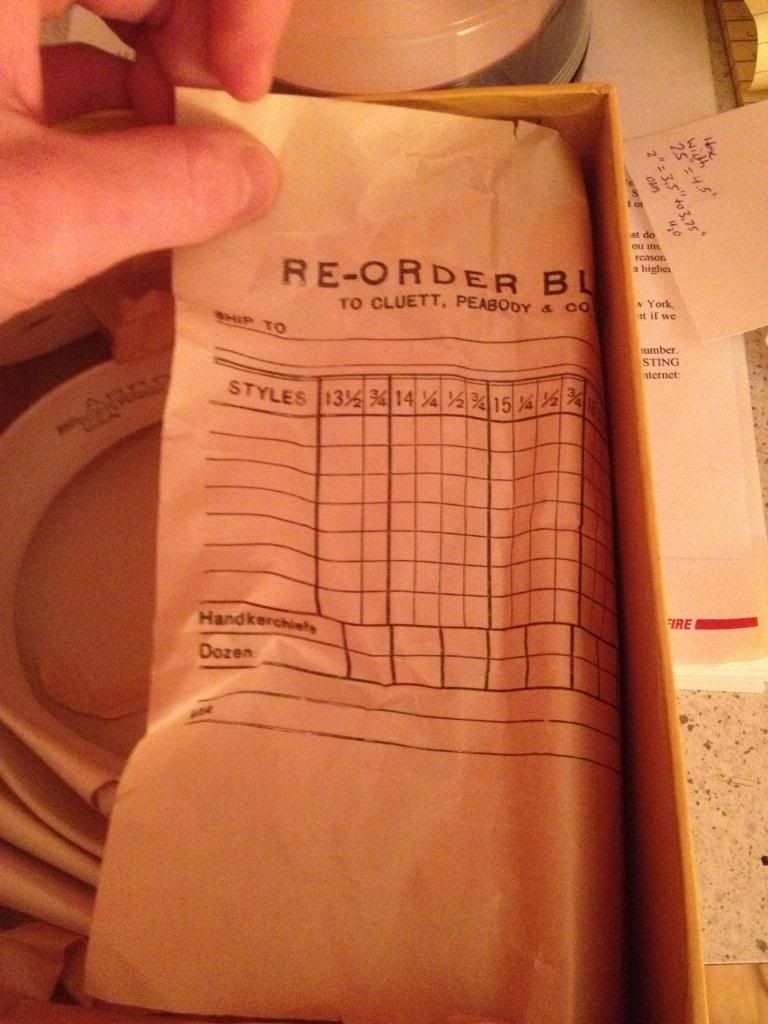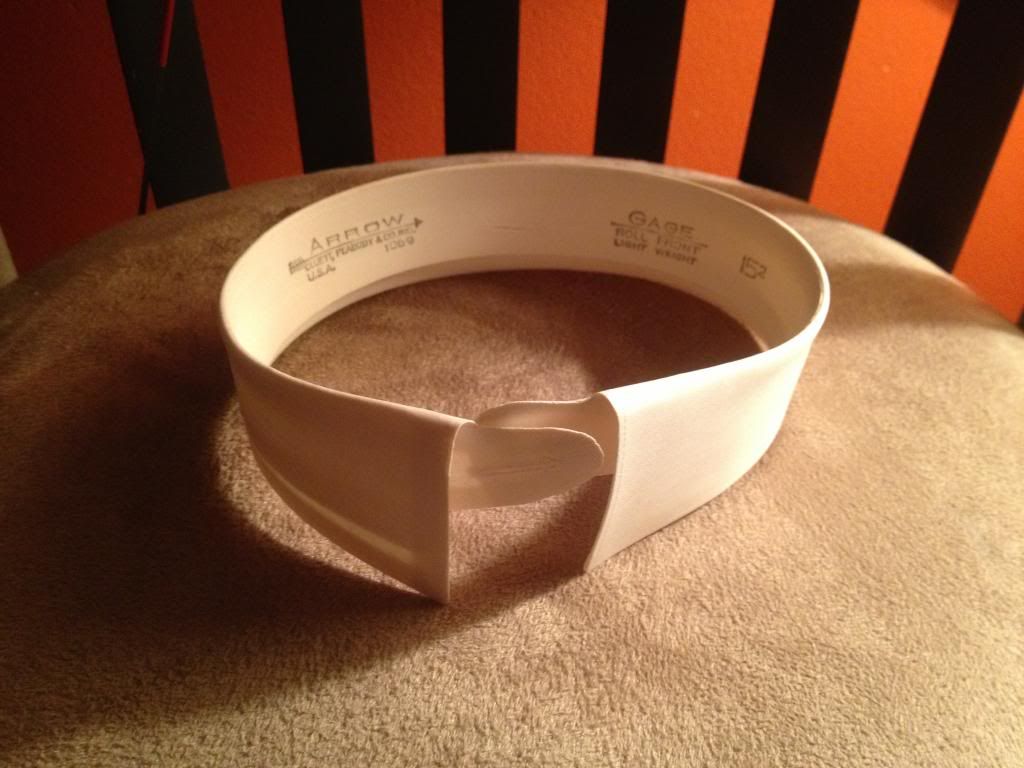Hello everyone, I apologize if this topic has been posted already. I have recently acquired an old box of Cluett, Peabody & Co. Arrow detachable collars. I don't own any detachable collared shirts but there was more of a significance to buying these, I was born in Troy, NY and have lived just outside the city my entire life. I have a deep love for Troy and its history so I felt I needed to bring these back home from Maryland. After a quick chat with my mom about these she told me that I had a couple of great aunts that worked at the Cluett Peabody factory bringing a deeper meaning to them. On top of that, they are ironically my size.
Now that the babbling is over, here they are, does anyone know how old these may be? The seller said possibly between 1900 & 1920.





Now that the babbling is over, here they are, does anyone know how old these may be? The seller said possibly between 1900 & 1920.





Last edited:


